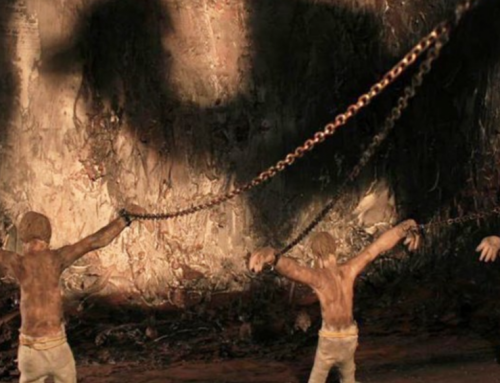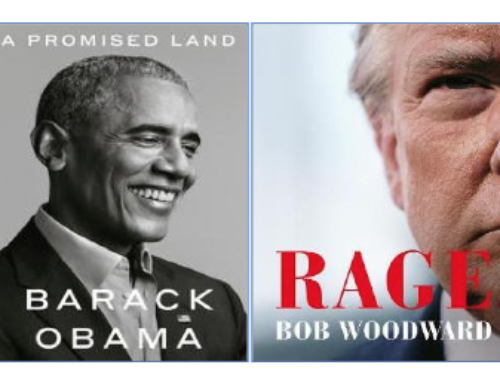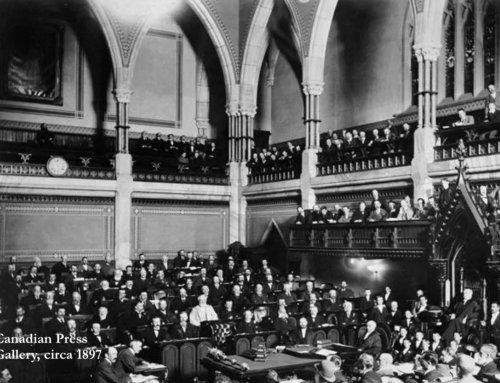and the hens will never stop being a bunch of chickens
Three things you might not know
- Why did the turkey cross the road? To prove he wasn’t a chicken. But being a bunch of turkeys doesn’t get us anywhere either, except over to the other side of the same road, which, as Plato established 2,400 years ago, is the long road of governance that runs in one inevitable direction, downhill.
- Plato set out in The Republic, the natural, evolutionary road map of five types of government: aristocracy, timocracy, oligarchy, democracy and tyranny. Unfortunately, today we overlook Plato’s prescience as we ignore the sinking foundation of the hen house we live in – what we think is a democracy.
- Justin Trudeau lies just like Donald Trump. Perhaps not as often but sometimes just as big. Trudeau’s reversal on electoral reform actually wasn’t a reversal at all, it was, from start to finish, a big lie. It’s likely that he never intended to change the democratic process that is the facade for oligarchy. And in the US, for Trump and his cronies, America’s “flawed democracy” is an opportune camouflage for moving to the next phase of governing, autocracy – Plato’s tyranny.
(7 minute read)
“The States are as the men are; they grow out of human characters.” — Socrates, The Republic, Book VIII
To stretch and compound the chicken metaphor, we citizens are not only chickens, we’re lemmings on a hamster wheel, incessantly arguing about left-right ideologies, good-bad policies, while thrashing around in the weeds of the swamp called democracy. We actually think we can make a difference. And sometimes we do make a small change in the weeds. But the swamp never gets drained. The alligators, whether they’re James Buchanan or Donald Trump or Pierre Trudeau or Justin Trudeau, are just characters who move us through the five types of government identified by Plato in the dialogues of Socrates in The Republic.
Enough of the metaphors, you get the idea – democracy isn’t. The big question is not Trump or Trudeau, it’s where are we, early in the 21st century, on Plato’s section of the road called “democracy?”
As I wrote last week, the fundamental problem is embedded in our declining democracy (see: The hypocrisy of democracy is the elephant in the room), and this week, I want to continue the conversation about the state of democracy with three glaring Canadian examples (ignoring Trump and his weekly neon-lit examples of how the US has already slipped into the “flawed democracy” category – see The Economist Intelligence Unit’s “Democracy Index 2016″).
Canada and small town, trickle-down excuses

PM Trudeau

Mayor Brocanier

Mayor Sanderson
In Canada, Trudeau’s manipulative strategy of electoral reform at the federal level is a story that needs to be seen in the context of where Canadian democracy is on Plato’s slippery slope. And the second story, in the small towns of Cobourg and Port Hope, Ontario, demonstrates the trickle-down effect served up by a dumpster full of excuses and lies, damn lies and unprincipled, weak leaders.
“Not to know what happened before one was born is always to be a child.” – Cicero
Canada is not as far down the road as America, where the signposts pointing toward autocracy are giant billboards (see earlier blog and Atlantic article by David Frum: Read this magazine before your next political debate). But Canada has been the “True North strong and oligarchical” since the French and British overran the natives and dolled out grand swaths of land to the conquering heroes. These were the property owners, the new oligarchy. As defined by Plato, an oligarchy is, “A government resting on the valuation of property, in which the rich have power and the poor man is deprived of it.”[1] This resonates in Canada today as it did 2,400 years ago in Athens. Look around, the power, property and riches of the original oligarchs is self-evident in their sons, daughters and grandchildren’s legacy. And it’s heralded in the historic names of small towns, monuments, institutions and street names – York, Simcoe, Talbotville, Bytown (Ottawa), Wrightsville (Hull), McGill University, Thompson Hall, Massey Hall, Eaton Centre, CEMP/Bronfman, Hudson Bay, Power Corp/Desmarais, Pitfields, Mackays, Hunters (Maclean-Hunter) et al.
Ironically, in 2017, Canadians will celebrate the enduring marshaling of the patriotic rabble to “stand on guard for thee,” hailing a 150 years of oligarchical rule.
“As the rich grow richer and richer, the more they think of making a fortune and the less they think of virtue … Democracy comes into power when the poor are the victors, killing some and exiling some, and giving equal shares in the government to all the rest.” – Socrates, The Republic.
Prime Minster Trudeau’s recent electoral reform promise was a vacuous straw dog in the perpetuation of the democratic myth and it was designed to continue the suppression of the underlying forces that Socrates cites as “bringing democracy to power … and giving equal shares in the government to all the rest.” Trudeau is subduing what Donald Trump and several European countries are unleashing, the poor trying to become victors. The risk in Canada, like the decline in America, is that government power controlled by the elite can slip right past any realistic form of democracy and go straight to autocracy.
Trudeau’s political scheme was fashioned to feed the unthinking electorate, and their guardian press, with the patented patriotic notion that democracy is alive and well and can rise to a new level, from unequal representation to somewhat more equal. It worked. The subsequent debate surrounding his election promise, and the reversal of it, was mostly about the confusion and public’s lack of understanding. The conclusion was a continuance of oligarchical rule under the guise of democracy. Dale Smith of Loonie Politics wrote a rather oligarchical-supporting, loony idea and a string of excuses in a recent article; the biggest one being, “… this isn’t a burning issue for most Canadians. And given that the system actually isn’t broken, not moving ahead with reform is the right thing to do.” As long as we have press who believe “the system actually isn’t broken,” and who don’t acknowledge how complexity turns “burning issues” into apathy, then we’re destined to prove, like so many nations before us (e.g., Rome, Russia, Germany, Italy), the longstanding prescience of Plato and that guy Socrates, who knew what the hell they were talking about.
“Fertile breeding ground for leaders.”
Trudeau’s objective was to let the people think he had their best interests at heart, scoop the political issue out from under the New Democratic Party (NDP), tour a cross-country, public circus with Democratic Institutions Minister Maryam Monsef, and then use the age-old government ploy of complexity to confuse the people into disinterest and disengagement. Brenda Fine in a Maclean’s article captured the purpose of Monsef’s charade: “At the intersection of ‘affinity for engagement’ and ‘contempt for metrics’ is fertile breeding ground for leaders who wish to make up their own rules.” If you’re part of the oligarchy, this is clever. If you’re part of the public, it’s insidious. Either way, it presents empirical evidence of a strong oligarchy, well entrenched and still implementing its inherited mandate.
The Canadian press provided good coverage of the Trudeau flip flop and what the National Post called “the inevitable collapse of the government’s electoral reform agenda.” But permeating much of the writing and conversation were rationalizations and excuses as to why it wouldn’t work, including incorrect or ill-defined explanations that co-mingled terms like ranked ballots, alternative vote, proportional representation, mandatory voting and online voting. In fact, to best understand it (it can get confusing), a good place to start is Fair Vote Canada, where they offer a clear and basic explanation of the systems and different terminology. They offer a simple comparison of the two systems: “Winner-take-all” versus “proportional representation.” And they describe the other terms as tools and tactics that can be applied to the chosen system. Fair Vote Canada states:
- Proportional systems – whether they use a ranked ballot or not – will fix the problems with first-past-the-post.
- Winner-take-all systems – whether they use a ranked ballot or not – will not fix the problems we find with majoritarian systems.
- All winner-take-all voting systems create false majorities. That’s the point of the system – manufactured majorities.
Any thoughtful, non-ideological skeptic would deduce that the government’s cross-country parade of town halls and badly designed online survey were intended to arrive at the preordained conclusion that it did: The public interest had not reached a level of support needed for electoral reform. Thus, their flip flop had little political fallout while flipping the public back into the desired state of apathy, one of an oligarchy’s best strategic weapons, usually facilitated by sound-byte, coverage-lite media.
Canada’s oligarchy thrives on “manufactured majorities” as “we the people” scurry about arguing left-right ideologies and every decade or so switch parties with the illusion that things will get better (i.e., Chretien: 1993-2003; Harper 2006-2015; Trudeau 2015-). We aren’t changing the system or the oligarchy, we’re just switching teams in and out of the same system. No matter which team, the oligarchy does just fine, thank you very much.
It wouldn’t have happened in Ancient Athens

Plato (left) and Socrates (right)
In towns and cities everywhere, the operating principles of oligarchy are emulated and applied, which is crucial to maintaining a national oligarchy. In Plato’s time, the governing bodies were independent “city-states,” each responsible for its own governance with no dependence on controlling, ugly step-mothers like provinces and money-handling, father-tyrants like a federal government. Athens had an estimated population of 250,000 to 300,000 with only about 30,000 to 50,000 adult male citizens who could vote (hard to believe it took 2,200 years to allow women to vote). It was direct democracy and leaders understood that revolt against the oligarchs was always a looming possibility.
Today, there is no risk at the local level. Municipalities are step-children, beholden to the money and authority of the province and a revolt in any particular town has no repercussions on the others. It’s just a nuisance ripple at the provincial level. Unless the local problem is a big enough that it could plant and foster the seed of discontent, perhaps start a revolt across multiple municipalities, then the threat of true democracy would rattle the oligarchs.
If, as Socrates said, “Democracy comes into power when the poor are the victors …” it means there has to be a local revolution and Socratic follow through that, figuratively speaking, “… killing some and exiling some, and giving equal shares in the government to all the rest.” This equates to the modern and more civil concept of “throw the bums out,” which usually means a clean-sweep election.

Town Hall, Port Hope, Ontario, Canada
In 2014, this happened in Port Hope, a town of 16,500 an hour east of Toronto, when the residents thought they were “victors” as they voted in a new mayor and 4-of-6 new councillors. Instead, they ran smack-dab into the myth of democracy and found themselves at the intersection of “affinity for engagement and a contempt for metrics” (lack thereof), and knee-deep in the “fertile breeding ground for leaders who wish to make up their own rules.” The principles of oligarchical rule were well embedded in Port Hope and the taxpayers had to take the fight to city hall, through the courts, where the municipality was found guilty of pilfering almost $5 million from a $10 million trust fund (appellate court decision April 18, 2017). So much for trust and democracy.

Victoria Hall, Cobourg, Ontario, Canada
In Cobourg, a neighboring town to Port Hope, the town council mirrored oligarchical practices in averting any attempt at bringing more democracy to the people. When faced with changing from a first-past-the-post system, they punted. Of course, municipalities come under the recent Provincial Municipal Elections Modernization Act, 2016, but they can make changes on their own. Emulating Trudeau, they applied a dump truck load of excuses and demonstrated a complete absence of principle-based leadership, personal will and integrity. The politicians and staff rolled out the tired old platitudes claiming: To initiate electoral change would be too complex and confusing; it would require public education; and, using the perennial political dodge, there was a lack of time, money and staff. Might we add, a lack of will, guts and…. Staff tabled a twenty-five page memorandum of rationalization (more complexity), which, off the top, under the heading of Strategic Plan, it noted, “Not Applicable.” Since when is improving the voting system not a strategic imperative? And then the staff proceeded to do everything they could to squash any consideration of a new way of doing things, including such statements as:
- The introduction of a ranked ballot system for electing Members of Municipal Council would be considered a significant change …
- This change could also decrease the voter turnout with the modification to ranked balloting due to a chance of public confusion and frustration …
- Conclusion: The Municipal Elections Modernization Act constitutes the most significant update to the Municipal Elections Act and the conduct of municipal elections in Ontario within the last two decades. The option of a ranked ballot system is a fundamental departure from the experience of the average voter. No municipality in Ontario currently conducts ranked ballot elections and …
Could they be any more against change? In their own words, it’s “the most significant update to the Municipal Elections Act … in two decades,” but be damned if anyone is going to do anything about it. Except keep supporting the oligarchical principle of non-participation of citizens. Cobourg Council opted for the status quo and continue counting on public apathy, which is critical at the local level under oligarchical rule – no big uprisings from the grassroots, no “Arab Spring” here. The dearth of character and will among local leaders is blatantly obvious, and all too common.
“[A free people has] an unalienable, indefeasible, divine right to that most dreaded and envied kind of knowledge, I mean of the characters and conduct of their rulers.” – John Adams.
Slow decline is the most insidious, we don’t notice it. We don’t consider it. We don’t think about it. And that’s key in oligarchies, and with the autocrats among them, who will await their opportunity as sure as they have for more than 2,400 years. Indicative of the current trend is the tagline now used by the eighth largest newspaper in the United States, the Washington Post: “Democracy Dies in Darkness.”
“Few men are so disinterested as to prefer to live in discomfort under a government that they hold to be right, rather than in comfort under one they hold to be wrong.” – C. V. Wedgwood, British historian.
Think about it.
Footnotes:
- The Republic by Plato, Book VIII, p. 437







Leave A Comment